
Sauraha: Gateway to Chitwan's Wilderness
Sauraha is a charming village located on the edge of Chitwan National Park, one of Nepal's premier wildlife destinations. This vibrant neighbourhood offers a unique blend of natural beauty and cultural experiences, making it a must-visit for any traveller. The village is renowned for its lush landscapes, where dense forests meet the Rapti River, creating a haven for wildlife enthusiasts and nature lovers. Visitors to Sauraha can embark on thrilling jungle safaris, either by jeep or on the back of an elephant, to catch a glimpse of the park's diverse animal population, which includes the endangered one-horned rhinoceros, Bengal tigers, and numerous bird species. The nearby Tharu village offers a cultural immersion, where tourists can experience traditional dances, crafts, and the warm hospitality of the local Tharu people. In addition to its wildlife and cultural attractions, Sauraha boasts a range of comfortable accommodations, from budget lodges to more luxurious resorts. The local markets and riverside eateries provide a delightful culinary experience, featuring both Nepali and international cuisines. Whether you're seeking adventure, relaxation, or a cultural journey, Sauraha is an ideal destination that promises unforgettable memories.
Local tips in Sauraha
- Book jungle safaris in advance to secure a spot, especially during peak tourist seasons.
- Wear neutral-colored clothing during safaris to blend in with the natural surroundings and increase chances of wildlife sightings.
- Carry insect repellent and sunblock to protect against bugs and sun exposure.
- Respect local customs and traditions when visiting Tharu villages; ask for permission before taking photographs.
- Consider staying in eco-friendly lodges that support local conservation efforts.
Sauraha: Gateway to Chitwan's Wilderness
Sauraha is a charming village located on the edge of Chitwan National Park, one of Nepal's premier wildlife destinations. This vibrant neighbourhood offers a unique blend of natural beauty and cultural experiences, making it a must-visit for any traveller. The village is renowned for its lush landscapes, where dense forests meet the Rapti River, creating a haven for wildlife enthusiasts and nature lovers. Visitors to Sauraha can embark on thrilling jungle safaris, either by jeep or on the back of an elephant, to catch a glimpse of the park's diverse animal population, which includes the endangered one-horned rhinoceros, Bengal tigers, and numerous bird species. The nearby Tharu village offers a cultural immersion, where tourists can experience traditional dances, crafts, and the warm hospitality of the local Tharu people. In addition to its wildlife and cultural attractions, Sauraha boasts a range of comfortable accommodations, from budget lodges to more luxurious resorts. The local markets and riverside eateries provide a delightful culinary experience, featuring both Nepali and international cuisines. Whether you're seeking adventure, relaxation, or a cultural journey, Sauraha is an ideal destination that promises unforgettable memories.
Iconic landmarks you can’t miss
New Sauraha Tharu Cultural House
Experience the vibrant traditions and cultural richness of the Tharu community at New Sauraha Tharu Cultural House in Sauraha, Nepal.

Chitwan National Park (Sauraha)
Experience the breathtaking diversity of wildlife and culture in Chitwan National Park, home to the one-horned rhinoceros and vibrant Tharu traditions.

Sauraha Sunset Point
Experience breathtaking sunsets at Sauraha Sunset Point, a tranquil escape in Chitwan, where nature's beauty meets serene wildlife encounters.

Sauraha Chowk
Experience the vibrant culture and adventure at Sauraha Chowk, your gateway to Chitwan National Park in Nepal.

Tharu Cultural Museum & Research Center
Discover the rich heritage of the Tharu people at the Tharu Cultural Museum & Research Center in Ratnanagar, a captivating national museum experience.

Wildlife Display & Information Center
Explore the Wildlife Display & Information Center in Ratnanagar, Nepal, for an enlightening journey into the region's diverse wildlife and conservation efforts.

Elephant Statue (Haatti Chwok)
Discover the Elephant Statue in Ratnanagar, a stunning historical landmark symbolizing rich cultural heritage and artistic excellence.
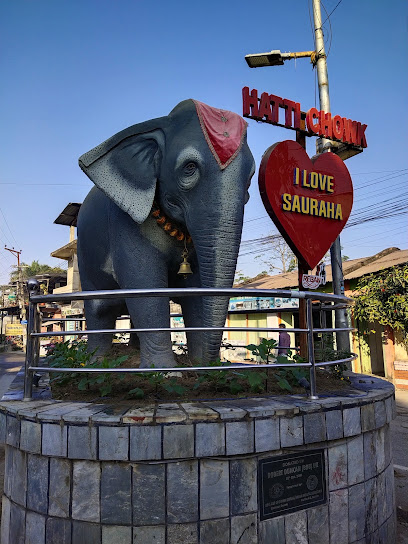
Wildlife Museum
Discover the fascinating world of wildlife at the Wildlife Museum in Ratnanagar, a captivating journey into nature's wonders and conservation efforts.

Chitwan wildlife tours
Explore the breathtaking wildlife of Chitwan National Park, where nature and culture intertwine in a unique adventure.

घण्टाघर Watch Tower
Explore the breathtaking views from Gantaghar Watch Tower, a historic landmark and gateway to the natural wonders of Chitwan National Park.

View point
Explore the Ratnanagar Viewpoint for stunning vistas and a peaceful retreat into the heart of Nepal's natural beauty.

Unmissable attractions to see
Sauraha Sunset Point
Experience the enchanting beauty of sunsets and diverse wildlife at Sauraha Sunset Point in Ratnanagar, Nepal.
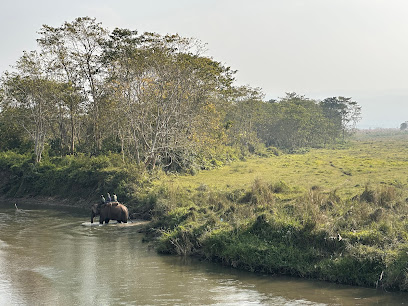
Wildlife Display & Information Center
Explore the Wildlife Display & Information Center in Ratnanagar, a hub of wildlife education and conservation, perfect for nature lovers and families.
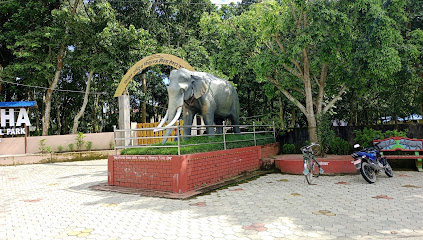
The Chitwan Tiger Guide Service And Mini Library
Dive into adventure at the Chitwan Tiger Guide Service and Mini Library, your portal to Chitwan National Park's stunning wildlife and rich culture.

Mowgli's eco - adventure tour
Explore the breathtaking landscapes and rich biodiversity of Nepal with Mowgli's eco-adventure tour in Ratnanagar.

Chitwan wildlife tours
Discover Chitwan Wildlife Tours, where the thrill of wildlife encounters meets the vibrant culture of the Tharu community in Nepal’s breathtaking landscapes.
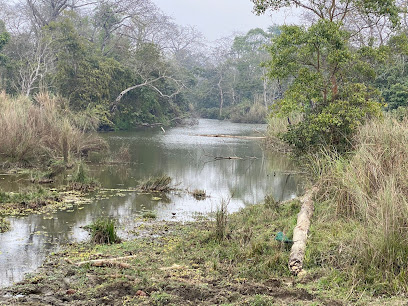
घण्टाघर Watch Tower
Discover breathtaking views and rich culture at Gantaghar Watch Tower, a premier tourist attraction in Ratnanagar, Nepal.
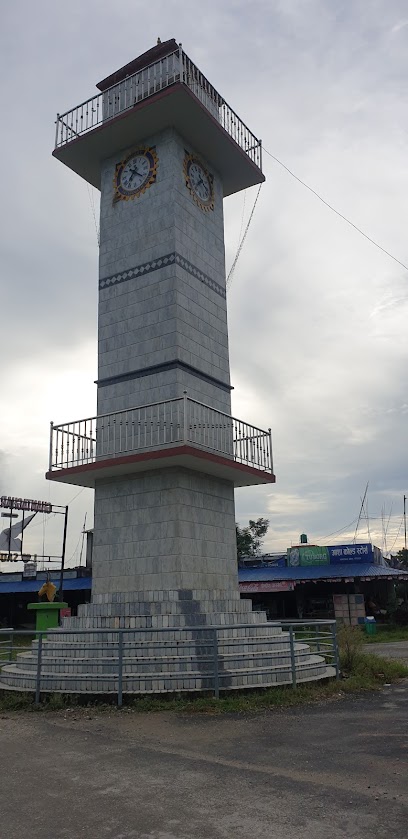
View point
Experience breathtaking vistas and serene tranquility at Ratnanagar's stunning View Point, a must-visit for nature lovers and photographers.
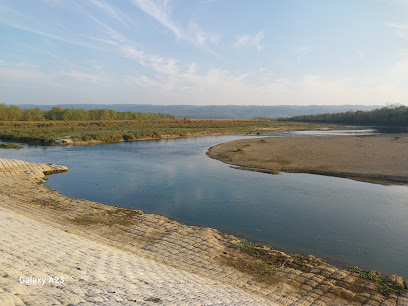
Essential places to dine
KC's Restaurant & Bar
Discover delicious local and international cuisine at KC's Restaurant & Bar in Ratnanagar – where flavor meets hospitality.
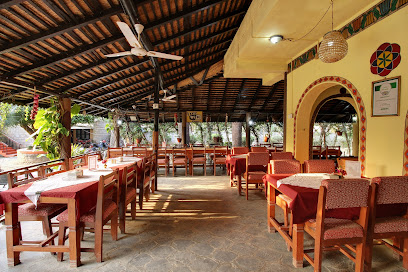
90's Greassy Spoon Restaurant, sauraha
Discover delicious comfort food and nostalgic decor at Sauraha's favorite dining spot - the 90's Greasy Spoon Restaurant.

Shantiko Kitchen
Experience authentic Nepali cuisine at Shantiko Kitchen in Ratnanagar—where every meal is a delightful journey through local flavors.

Bayleaf Restaurant sauraha
Discover the taste of America at Bayleaf Restaurant in Sauraha – where local ingredients meet international cuisine.

Royal Kitchen and bar
Savor authentic Nepali cuisine alongside global flavors at Royal Kitchen and Bar in Ratnanagar - a true culinary delight!
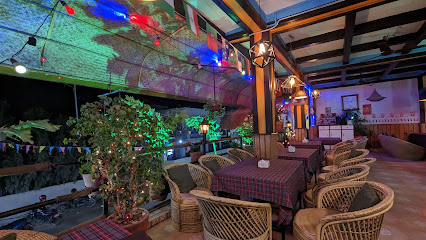
Sunset View Restaurant and Bar
Experience exquisite dining with stunning sunset views at Sunset View Restaurant and Bar in Ratnanagar.

Sauraha Beach Restaurant & BAR
Experience authentic Nepali cuisine in a serene riverside setting at Sauraha Beach Restaurant & BAR.
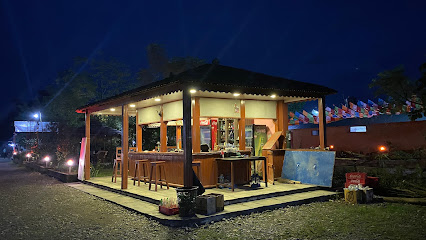
Sauraha Thakali Kitchen
Discover authentic Nepali flavors at Sauraha Thakali Kitchen – where every dish tells a story.
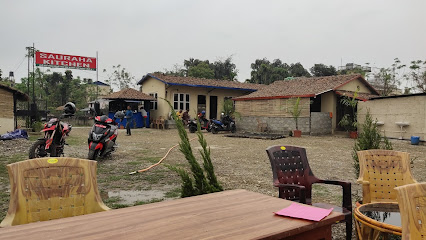
COWBOY pub
Savor the authentic tastes of Nepal at Cowboy Pub in Gaidachowk – where every meal is a cultural journey.
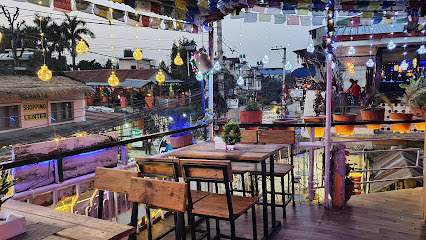
Nature View Restaurant & Bar
Discover culinary bliss at Nature View Restaurant & Bar in Ratnanagar, where stunning scenery meets delightful flavors.

Markets, malls and hidden boutiques
Paudel Provisional Shop
Discover local flavors at Paudel Provisional Shop in Ratnanagar, where convenience meets community in a vibrant grocery shopping experience.

Everything Elephant
Discover unique apparel inspired by Nepal's culture and wildlife at Everything Elephant in Ratnanagar – a shopping experience you won't forget.

Sauraha Gift Corner
Discover unique handmade gifts and authentic souvenirs at Sauraha Gift Corner, a must-visit spot for travelers in Ratnanagar, Nepal.
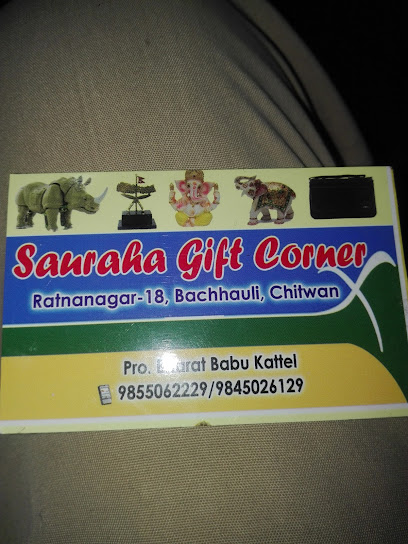
Sauraha Mini Stores
Discover the charm of Sauraha Mini Stores, a shopping haven in Ratnanagar, where local crafts and delicious snacks await every traveler.

SAURAHA
Discover the enchanting village of Sauraha, your gateway to Chitwan National Park's wildlife wonders and rich Tharu culture.

Seven eleven Provision Shop
Explore local delights and essential travel items at Seven Eleven Provision Shop in Ratnanagar - your go-to shopping destination in Nepal.
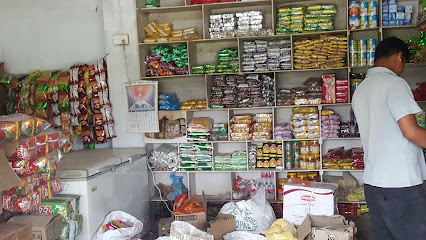
Sauraha Shopping Center
Explore unique souvenirs and gifts at Sauraha Shopping Center, a vibrant hub of Nepali craftsmanship in Ratnanagar.
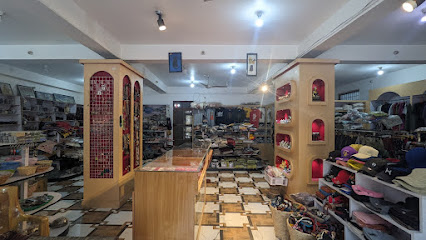
वर्षा मल्टी ट्रेडर्स & Gas डिपो
Explore the vibrant culture of Nepal through unique gifts and artisanal crafts at वर्षा मल्टी ट्रेडर्स & Gas डिपो in Ratnanagar.
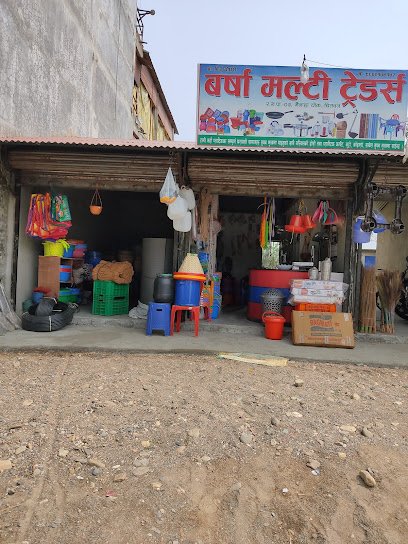
Chitwan Handicraft and Souvenir Shop
Explore the vibrant Chitwan Handicraft and Souvenir Shop for unique local handicrafts and refreshing drinks in Ratnanagar, Nepal.
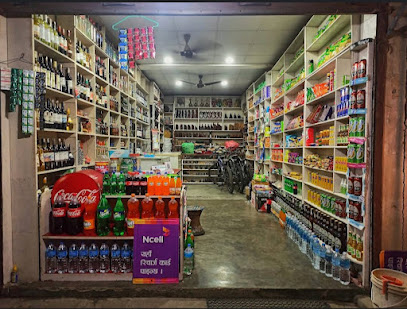
Unique Gift Shop
Discover the Unique Gift Shop in Ratnanagar for authentic crafts, clothing, and local artistry that capture the spirit of Nepal.

Essential bars & hidden hideouts
Sunset View Restaurant and Bar
Indulge in exquisite cuisine while soaking in breathtaking sunset views at Sunset View Restaurant and Bar in Ratnanagar.

COWBOY pub
Discover the lively COWBOY Pub in Gaidachowk for an unforgettable culinary experience filled with local flavors and vibrant ambiance.

Hotel Flycatcher Chitwan
Experience the tranquility of nature at Hotel Flycatcher Chitwan, your gateway to Chitwan National Park’s wildlife and cultural wonders.
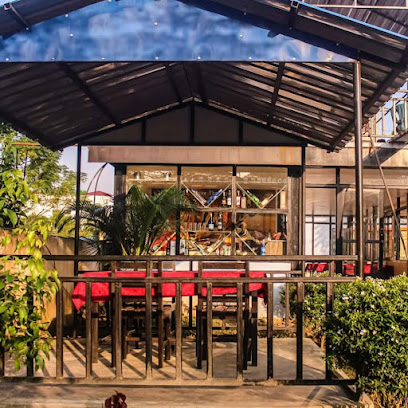
Option Restaurant
Explore the vibrant flavors of Ratnanagar at Option Restaurant, where expertly grilled dishes meet warm hospitality in a cozy atmosphere.

Red Horse Pub & Music Bar
Discover the pulsating nightlife of Ratnanagar at Red Horse Pub & Music Bar, where live music and refreshing drinks create unforgettable evenings.

THE 90'S SAURAHA
Experience the nostalgic charm of The 90's Sahuraha, where delicious cuisine and refreshing drinks meet the beauty of Ratnanagar, Nepal.
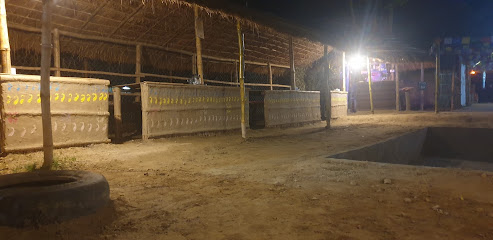
Newari Kitchen Bar
Discover the essence of Newari cuisine at Newari Kitchen Bar in Ratnanagar, where every dish tells a story of tradition and flavor.
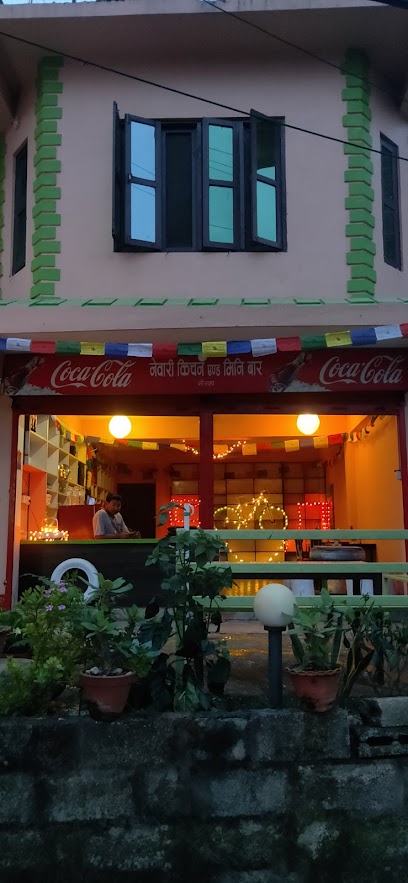
Best Food
Experience authentic Nepalese cuisine at Best Food in Ratnanagar, a vibrant bar perfect for unwinding after exploring Chitwan National Park.

Hippies Chiya & Bites
Discover the vibrant ambiance and unique local flavors at Hippies Chiya & Bites, the perfect bar for tourists in Ratnanagar, Nepal.

Happy hour restaurant
Experience the essence of local culture at Happy Hour Restaurant in Ratnanagar, your go-to bar for relaxation and delightful drinks.

Local Phrases
-
- Helloनमस्ते
[namaste] - Goodbyeछोडी दिनुहोस्
[chhodi dinuhos] - Yesहो
[ho] - Noहोइन
[hoin] - Please/You're welcomeकृपया
[krupaya] - Thank youधन्यवाद
[dhanyabad] - Excuse me/Sorryक्षमा गर्नुहोस्
[kshama garnuhos] - How are you?तिमीलाई कस्तो छ?
[timilai kasto cha] - Fine. And you?राम्रो छ। तिमीलाई?
[ramro cha. timilai?] - Do you speak English?तिमी अंग्रेजी बोल्नुहुन्छ?
[timi angreji bolnuhunchha] - I don't understandम कुरा सम्झिन
[ma kura samjhina]
- Helloनमस्ते
-
- I'd like to see the menu, pleaseकृपया मेनु हेर्न चाहन्छु
[krupaya menu hern chahanchu] - I don't eat meatम मासु खाँदिन
[ma masu khandin] - Cheers!चियर्स!
[chiyars] - I would like to pay, pleaseकृपया म सेवा गर्न चाहन्छु
[krupaya ma seva garn chahanchu]
- I'd like to see the menu, pleaseकृपया मेनु हेर्न चाहन्छु
-
- Help!मद्दत!
[maddat] - Go away!ओर्को जाओ!
[orko jao] - Call the Police!पुलिसलाई बोलाउनुहोस्!
[polis lai bolaunuhos] - Call a doctor!डाक्टरलाई बोलाउनुहोस्!
[daktar lai bolaunuhos] - I'm lostम हराएको छु
[ma haraeko chu] - I'm illम बिमार छु
[ma bimar chu]
- Help!मद्दत!
-
- I'd like to buy...म खरिद गर्न चाहन्छु...
[ma kharid garn chahanchu] - I'm just lookingम सिर्जना गर्दैछु
[ma sirjana gardaichu] - How much is it?यसको मूल्य कति हो?
[yasko mulya kati ho] - That's too expensiveयो धेरै महँगो छ
[yo dherai mahango cha] - Can you lower the price?के तपाईं मूल्य कम गर्न सक्छन्?
[ke tapai mulya kam garn sakchan]
- I'd like to buy...म खरिद गर्न चाहन्छु...
-
- What time is it?कति बजे भयो?
[kati baje bhayo] - It's one o'clockएक बजे भयो
[ek baje bhayo] - Half past (10)दस जना पछि
[das jana pachi] - Morningबिहान
[bihan] - Afternoonदिउँसो
[diunso] - Eveningसाँझ
[sanh] - Yesterdayहिजो
[hijo] - Todayआज
[aaj] - Tomorrowभोलि
[bholi] - 1एक
[ek] - 2दुई
[dui] - 3तीन
[tin] - 4चार
[char] - 5पाँच
[panch] - 6छ
[chha] - 7सात
[sat] - 8आठ
[aath] - 9नौ
[nau] - 10दस
[das]
- What time is it?कति बजे भयो?
-
- Where's a/the...?यहाँ... कहाँ छ?
[yaha... kaha cha] - What's the address?ठेगाना के हो?
[thegana ke ho] - Can you show me (on the map)?तपाईंले मलाई देखाउन सक्नुहुन्छ?
[tapainle malai dekhaun saknuhunchha] - When's the next (bus)?अर्को (बस) कहिले हो?
[arko (bas) kahile ho] - A ticket (to ....)एक काठमान्धौं तिर...
[ek kathamandu tir...]
- Where's a/the...?यहाँ... कहाँ छ?
History of Sauraha
-
Sauraha's history begins with its early settlements, primarily inhabited by the indigenous Tharu people. The Tharu community has a rich agricultural tradition, relying on the fertile land along the banks of the Rapti River. Their unique culture, characterized by distinct festivals, music, and dance, has persisted through the centuries, showcasing their connection to the land.
-
In the late 20th century, Sauraha began to evolve as a key tourist destination, primarily due to its proximity to Chitwan National Park, established in 1973. As awareness of the park's biodiversity grew, Sauraha became the gateway for visitors seeking to explore the rich wildlife, including the one-horned rhinoceros and Bengal tiger, which significantly impacted the local economy and culture.
-
The influx of tourists has led to a fusion of cultures in Sauraha, blending Tharu traditions with influences from various nationalities. Local businesses, including hotels, restaurants, and tour operators, have emerged, creating job opportunities and fostering community development. Initiatives to preserve Tharu culture, such as traditional dance performances and handicraft exhibitions, have also gained prominence.
-
With the growth of tourism, Sauraha has become a focal point for conservation efforts within Chitwan National Park. Various organizations have worked to promote sustainable tourism practices, ensuring that the ecological integrity of the region is preserved while providing educational experiences for visitors. The balance between tourism and conservation remains a critical aspect of Sauraha's development.
-
Today, Sauraha stands as a vibrant cultural hub, where traditional Tharu life coexists with modern tourism. The annual Tharu Festival celebrates the community's heritage, drawing both locals and tourists. This event, along with various other cultural activities, underscores the importance of Sauraha not just as a gateway to nature, but also as a living testament to the resilience and richness of Tharu culture.
Sauraha Essentials
-
Sauraha is easily accessible from various locations within Chitwan National Park. The nearest major city is Bharatpur, approximately 15 kilometers away. You can take a taxi or a local bus from Bharatpur to Sauraha, with the journey taking around 30 minutes. Alternatively, if you are coming from Pokhara or Kathmandu, long-distance buses regularly operate to Bharatpur, from which you can transfer to a local vehicle to reach Sauraha.
-
Sauraha is a small, walkable village, making it easy to explore on foot. For longer distances, bicycles can be rented from local shops, offering a fun way to see the surrounding areas. Local taxis and rickshaws are also available for transport. Be mindful that there are no train services in Sauraha; the primary means of transport are road-based.
-
Sauraha is generally safe for tourists, but it's advisable to take common precautions. Avoid walking alone at night in poorly lit areas, and be cautious with your belongings, especially in crowded places. Petty theft can occur, particularly around tourist hotspots. Always stay vigilant and be aware of your surroundings, although there are no specific high-crime areas targeting tourists.
-
In case of emergencies, you can dial 102 for police assistance and 101 for fire services in Nepal. The nearest hospital is in Bharatpur, about 15 kilometers away. It is highly recommended to have travel insurance that covers medical emergencies. For minor health issues, local pharmacies in Sauraha offer over-the-counter medications.
-
Fashion: Do dress modestly, especially when visiting religious sites. Avoid revealing clothing. Religion: Do respect local customs and traditions; it's advisable to cover your head when entering temples. Public Transport: Do be courteous; offer your seat to the elderly. Don’t eat or drink on public transport. Greetings: Do greet locals with a polite 'Namaste'. Eating & Drinking: Do try local food and accept hospitality graciously. Don’t refuse food offerings, as this can be seen as impolite.
-
To experience Sauraha like a local, visit the vibrant Tharu Village nearby to learn about traditional Tharu culture, including their dances and crafts. Engage with local shopkeepers and participate in community activities if possible. Don't miss the chance to enjoy a canoe ride in the Rapti River for a unique perspective of the area and its wildlife, and always negotiate prices politely when shopping in local markets.
Trending Landmarks in Sauraha
Nearby Cities to Sauraha
-
Things To Do in Bandipur
-
Things To Do in Gorkha
-
Things To Do in Patan
-
Things To Do in Kathmandu
-
Things To Do in Pokhara
-
Things To Do in Bhaktapur
-
Things To Do in Nagarkot
-
Things To Do in Lumbini
-
Things To Do in Namche Bazaar
-
Things To Do in Patna
-
Things To Do in Varanasi
-
Things To Do in Lucknow
-
Things To Do in Darjeeling
-
Things To Do in Siliguri
-
Things To Do in Gangtok









